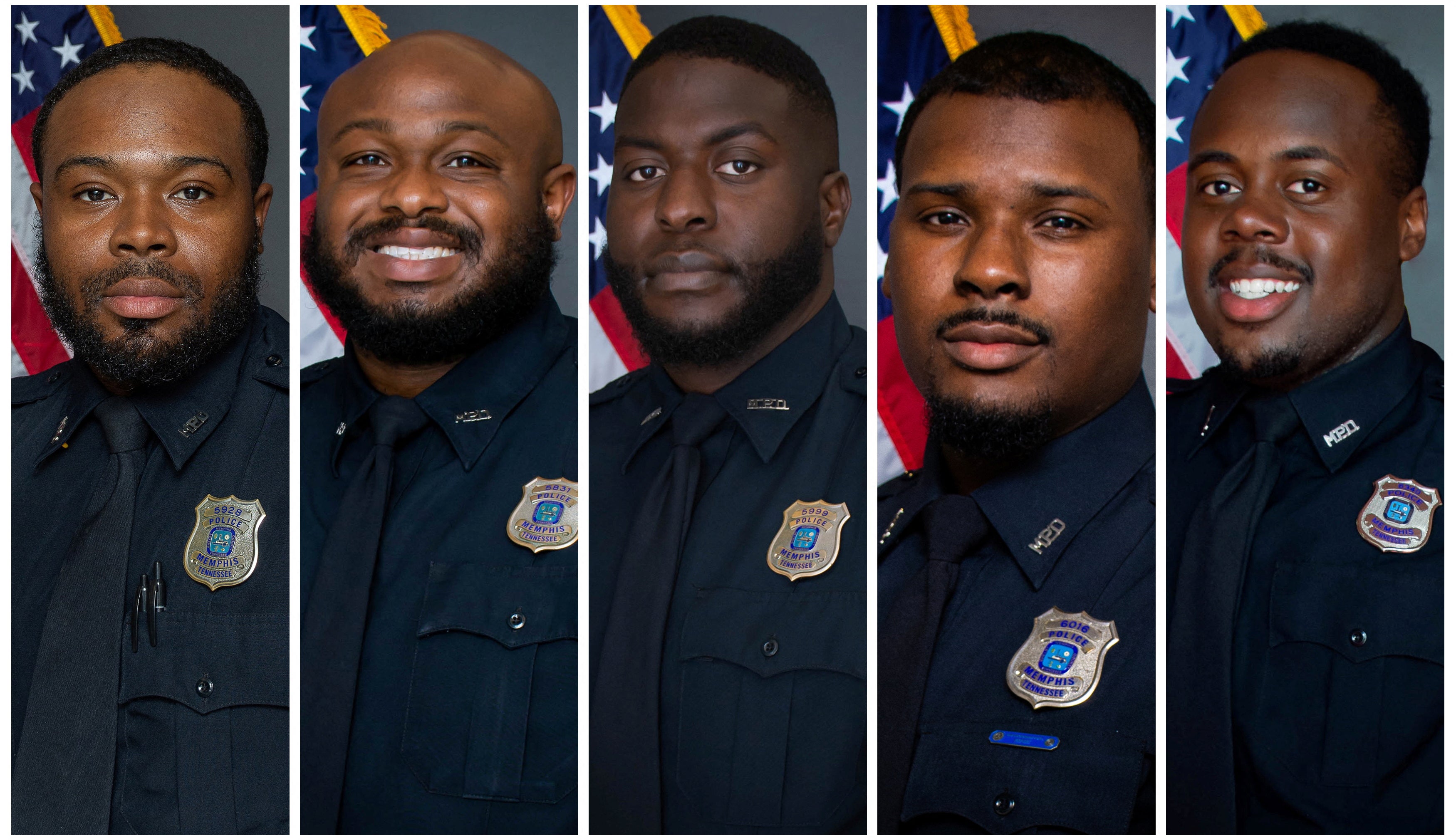Five fired Memphis police officers have been charged with second-degree murder in the fatal beating of 29-year-old Tyre Nichols, an unarmed Black man whom they had pulled over, earlier this month.
Shelby County District Attorney Steve Mulroy told reporters that while each officer’s actions were different, they all contributed to Nichols’ death. “They are all responsible,” he said. He said the city will release video footage of the incident on Friday at 6 p.m. CST.
The former officers in the case—Tadarrius Bean, Demetrius Haley, Emmitt Martin III, Desmond Mills Jr., and Justin Smith, all of whom are also Black—have each been charged with aggravated assault, aggravated kidnapping, official misconduct, and official oppression. Attorneys for Martin and Mills told reporters they have not yet seen the video footage of the encounter with Nichols, but that “no one out there that night intended for Tyre Nichols to die.”
Mulroy confirmed that Memphis’ SCORPION Unit, a new unit created by the Memphis Police Department in an effort to address rising violent crime in the city, was involved in Nichols’ stop. He added that there will be an investigation of the city’s special units.
At a press conference earlier this week, the Nichols family’s attorneys said they have seen the footage, and compared it to the infamous 1991 police beating of Rodney King. Benjamin Crump, one of the attorneys representing the family, said that the race of the officers does not detract from the disparities in how police treat Black motorists.
Nichols was on his way home from taking photos of the sunset in a local park when police pulled him over, his family’s attorneys said Monday.
Memphis police previously said that after they pulled him over for alleged reckless driving, there was a “confrontation” and Nichols tried to run away. Police followed, apprehended him, and there was a second “confrontation” that ended in his arrest. He was taken to the hospital because he was experiencing shortness of breath, and he died three days later, on Jan. 10, from injuries sustained during the encounter.
Nichols’ family commissioned an independent autopsy of their son, which found he suffered extensive bleeding caused by a severe beating. They had initially wanted nothing less than first-degree murder charges, but his stepfather told the Associated Press Thursday that his family is “fine with” the second-degree murder charges.
Memphis Police Chief Cerelyn Davis has acknowledged that Nichols’ case would provoke a strong emotional response, saying in a statement, “I expect you to feel what the Nichols family feels. I expect you to feel outrage.” The city is bracing for large-scale protests, and Van Turner, president of the NAACP Memphis branch, spoke to local Memphis media and warned that “tearing up your own community won’t solve this problem.”
